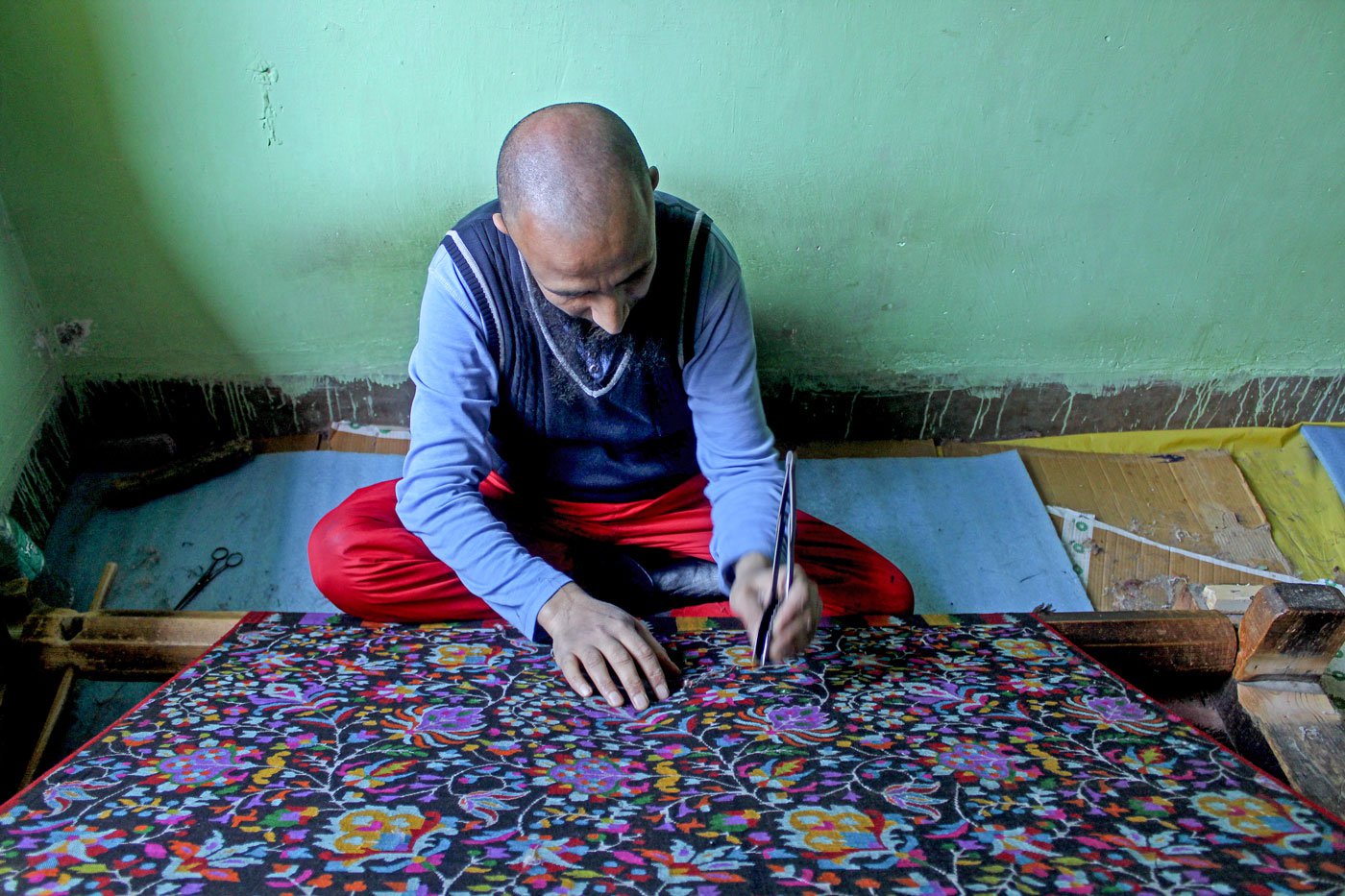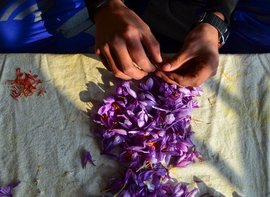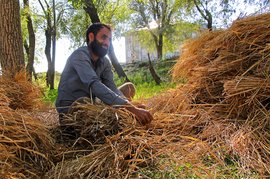"It is we who give pashmina shawls their silky finish.”
Abdul Majeed Lone's house in Srinagar is littered with tangles of thread. Sitting on the floor, a wouch (a sharp iron tool) in hand, he dexterously plucks stray threads and lint off a freshly-woven pashmina shawl. “Very few people know that a craft like ours exists,” he says.
The 42-year-old craftsman lives in Nawa Kadal ward in Srinagar district. He uses a wouch to manually pluck
purz
(lint or threads) off high-value pashmina shawls. This work is called
purazgari
and there are more than 200 such craftspeople working in Srinagar alone. Abdul has been a
purazgar
craftsman for two decades now, earning roughly Rs. 200 for eight hours of work.
For all kinds of pashmina shawls – woven, dyed and embroidered –
purazgari
is done manually. The delicate nature of the fabric does not allow for any machine to substitute for the craftsperson's skill.
A wouch is essential to
purazgari
. “Our entire earning depends on a wouch
and its quality,” Abdul says, peering intently at a shawl that is tautly stretched across the wooden loom in front of him. “It is difficult for us to refine a pashmina shawl without a wouch.”
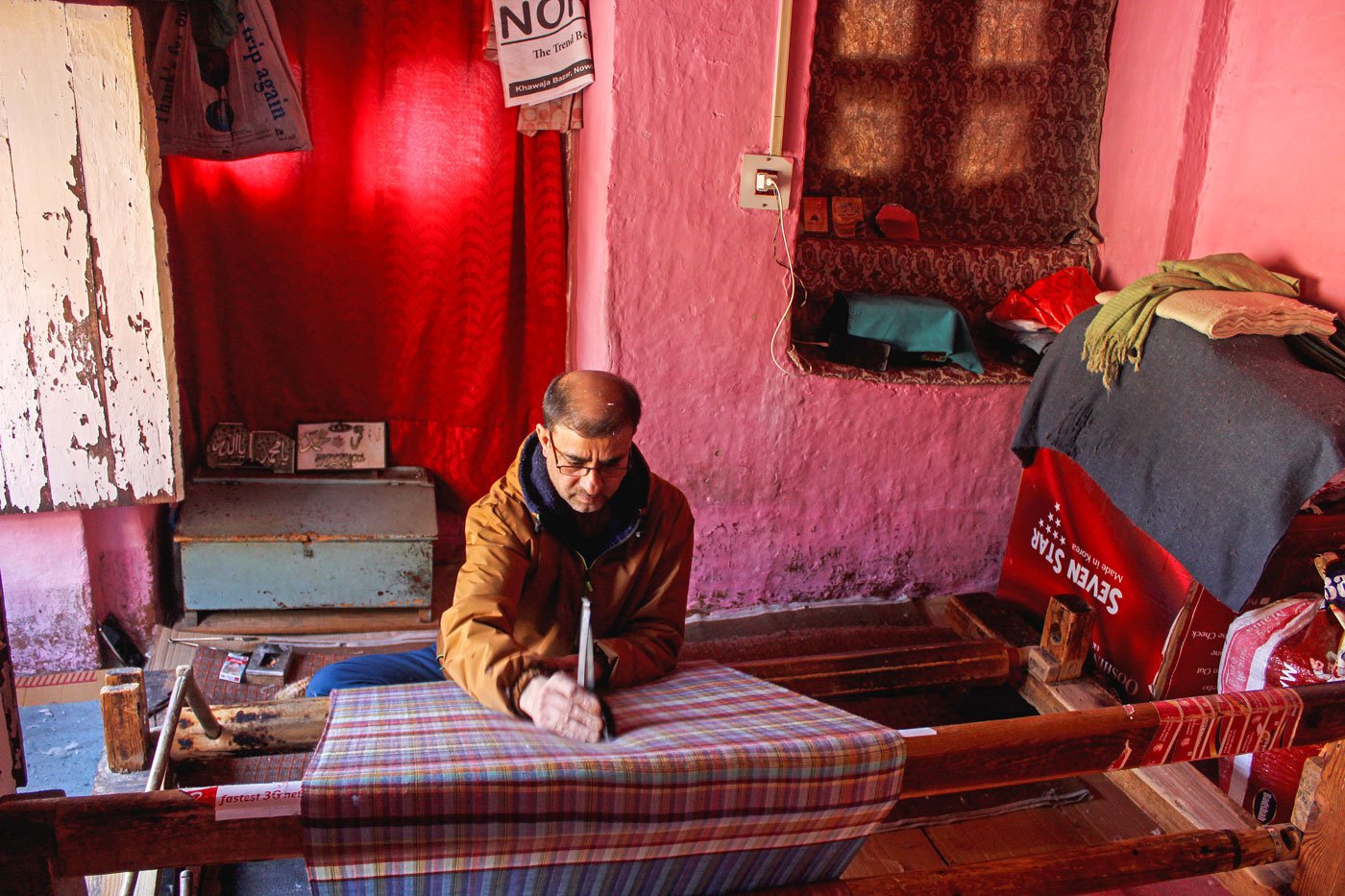
Abdul Majeed Lone works on a pashmina shawl tautly stretched across the wooden loom in front
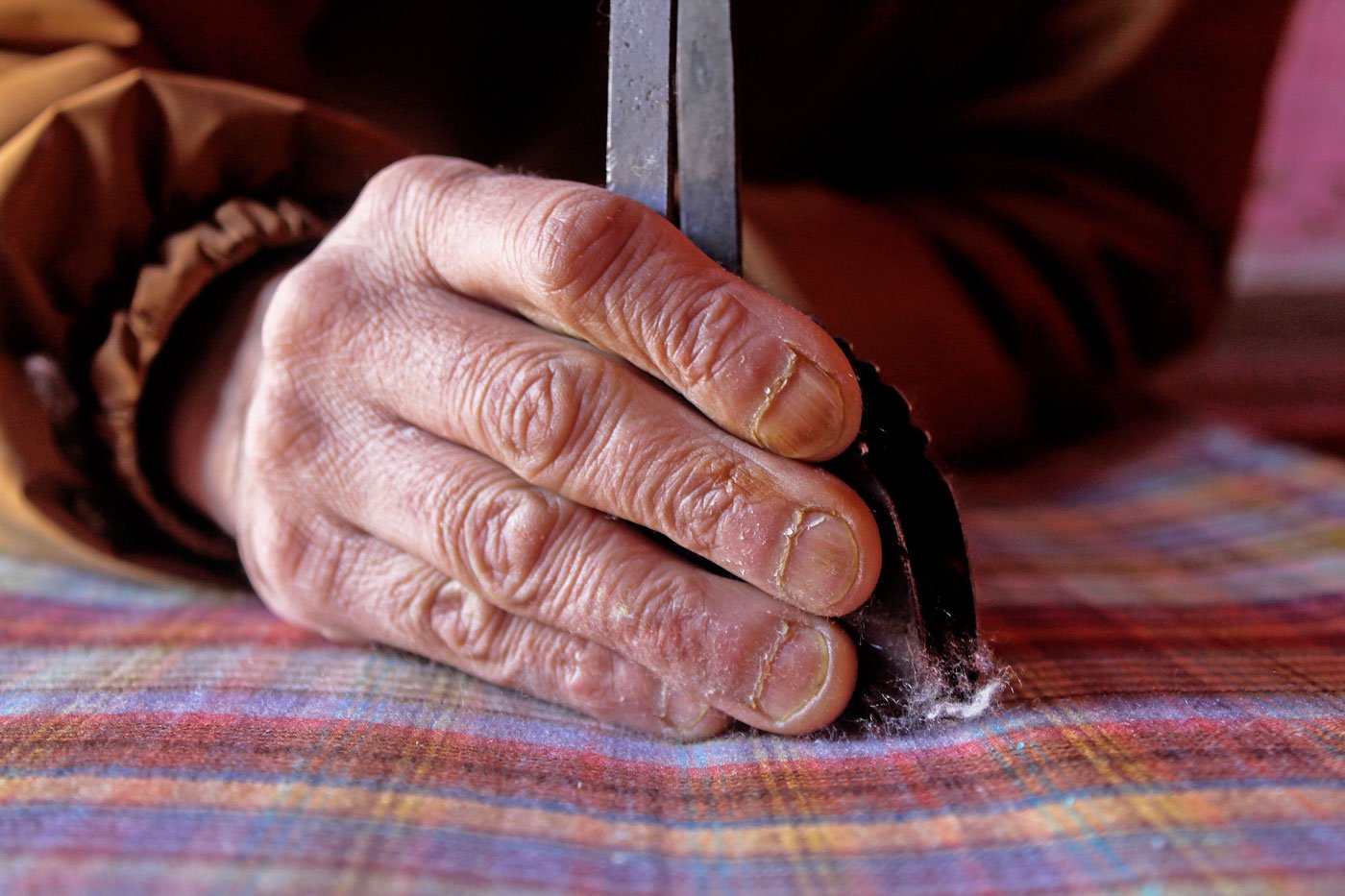
Working with an iron wouch, Abdul removes lint from the shawl
Of late, purazgars in Srinagar have been struggling to find blacksmiths who manufacture wouchs, or can sharpen them adequately. “There will come a time when the craft of purazgari will disappear because of the shortage of wouchs,” Abdul adds with concern. “I myself am using the last one I own. Once its sharpness is gone, I will be without a job.”
A 20-minute walk from Abdul's home is blacksmith Ali Mohammad Ahanger's shop. The Ali Kadal area of Srinagar district has about a dozen blacksmith shops and Ali’s is one of the oldest. No blacksmith, including Ali, is eager to craft a wouch. They say that for the time and labour they expend, the returns are simply not enough.
“Making a wouch is a matter of skill. A wouch should be so sharp and so crafted that it can pluck even the tiniest [stray] threads off a pashmina shawl.” Talking as he hammers a chainsaw into shape, the 50-year-old Ali says, “I am sure that even if I try to make a wouch, I will not be successful.” He adds with conviction, “Only Noor was an expert in making a wouch.”
Noor Mohammad, who passed away 15 years ago, has a long-standing reputation in Srinagar as an expert in crafting wouchs. Most of the wouchs in circulation around downtown Srinagar have been made by him. But
purazgars
worry because, “Noor taught only his son how to make a wouch. His son, though, is not interested in making it. He has a job in a private bank that pays better than this,” says Feroz Ahmad, a young
purazgar
working at a workshop in Mirjanpura.
Working with twelve other
purazgars
in the workshop, 30-year-old Feroz is using a wouch that has not been sharpened properly in the previous two years. “There is no growth in
purazgari
,” he says. “I am earning the same as I was earning 10 years ago.”
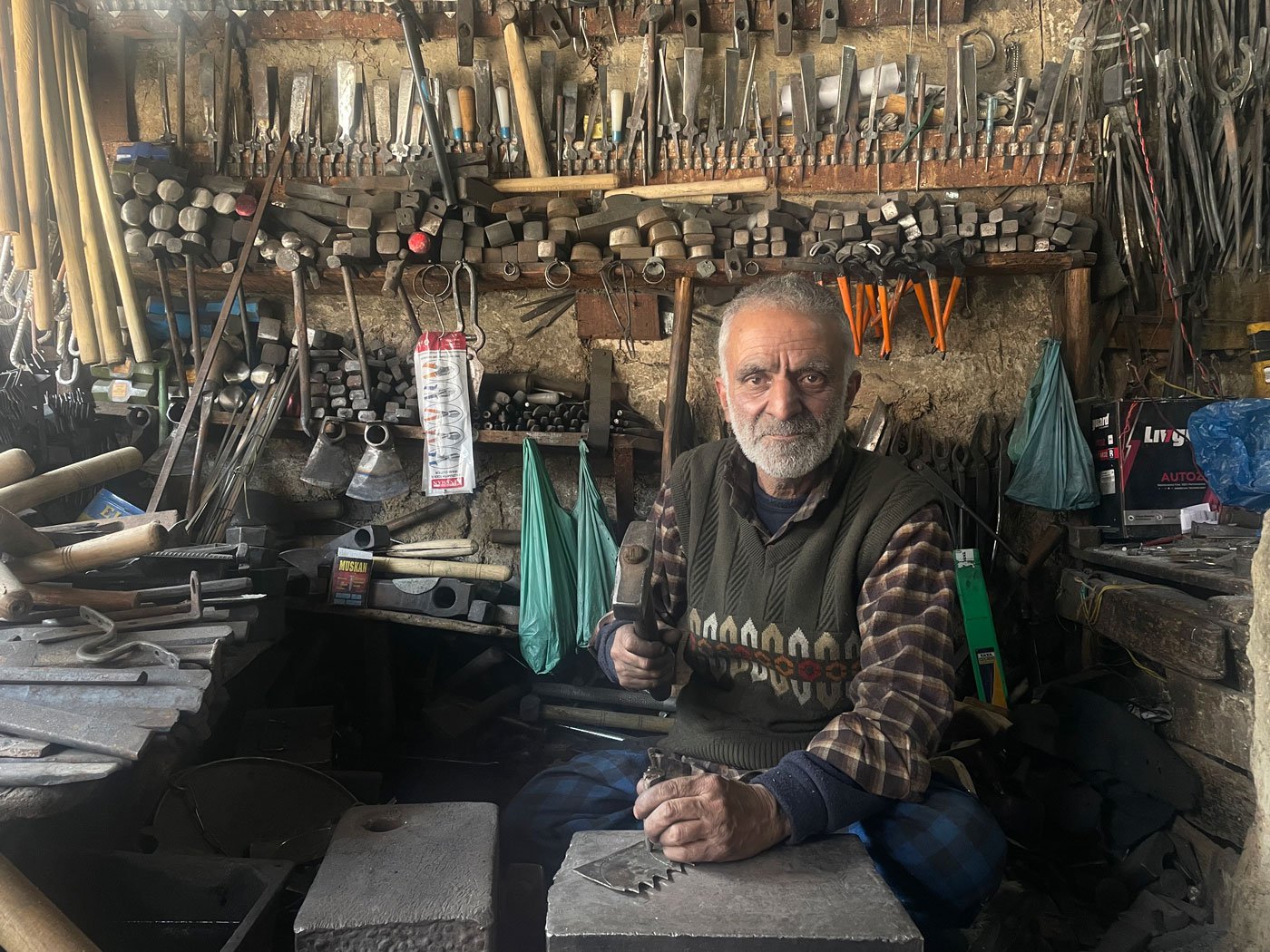
'I am sure that even if I try to make a wouch, I will not be successful,' says Ali Mohammad Ahanger, a blacksmith in Srinagar’s Ali Kadal area
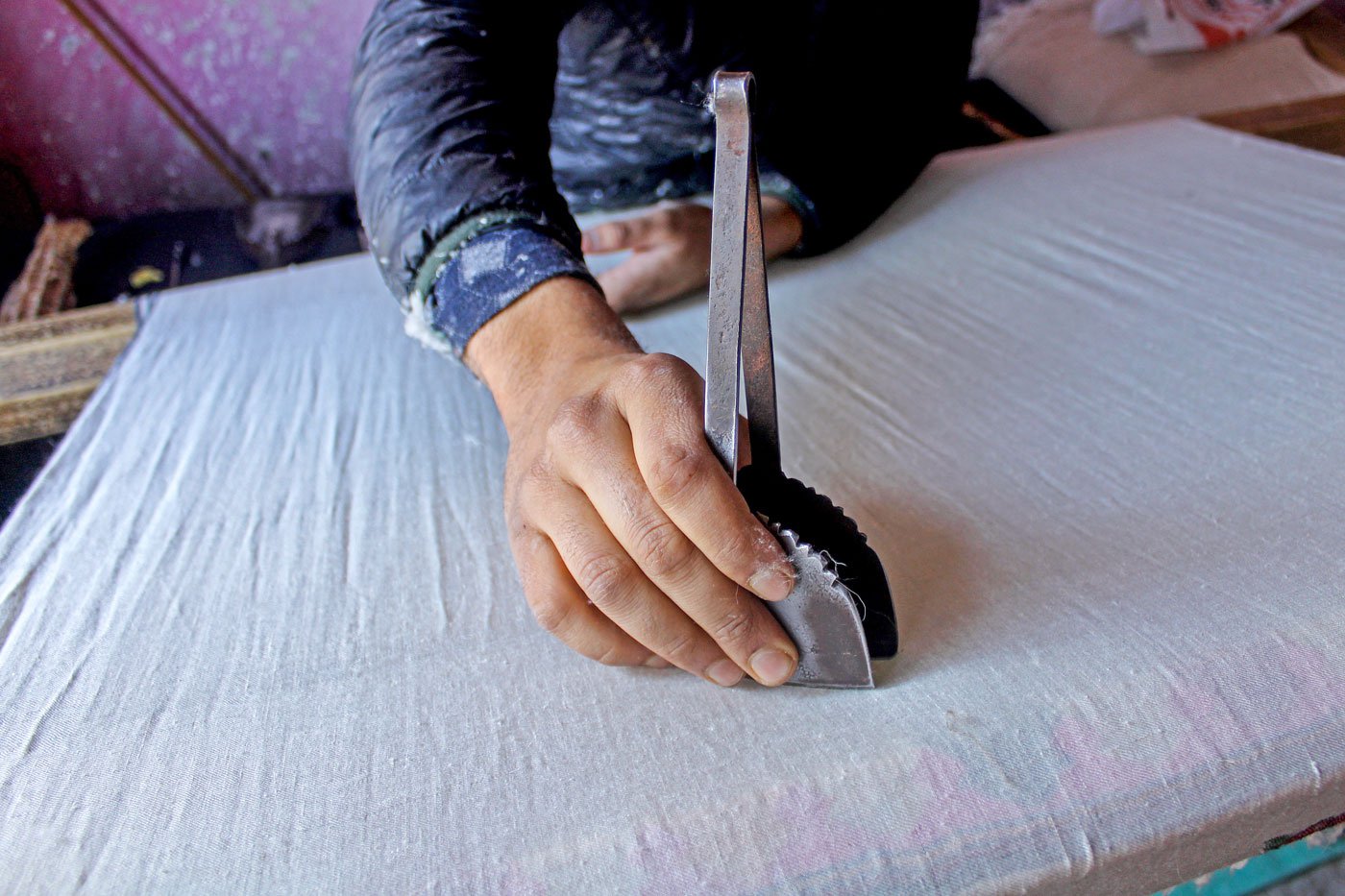
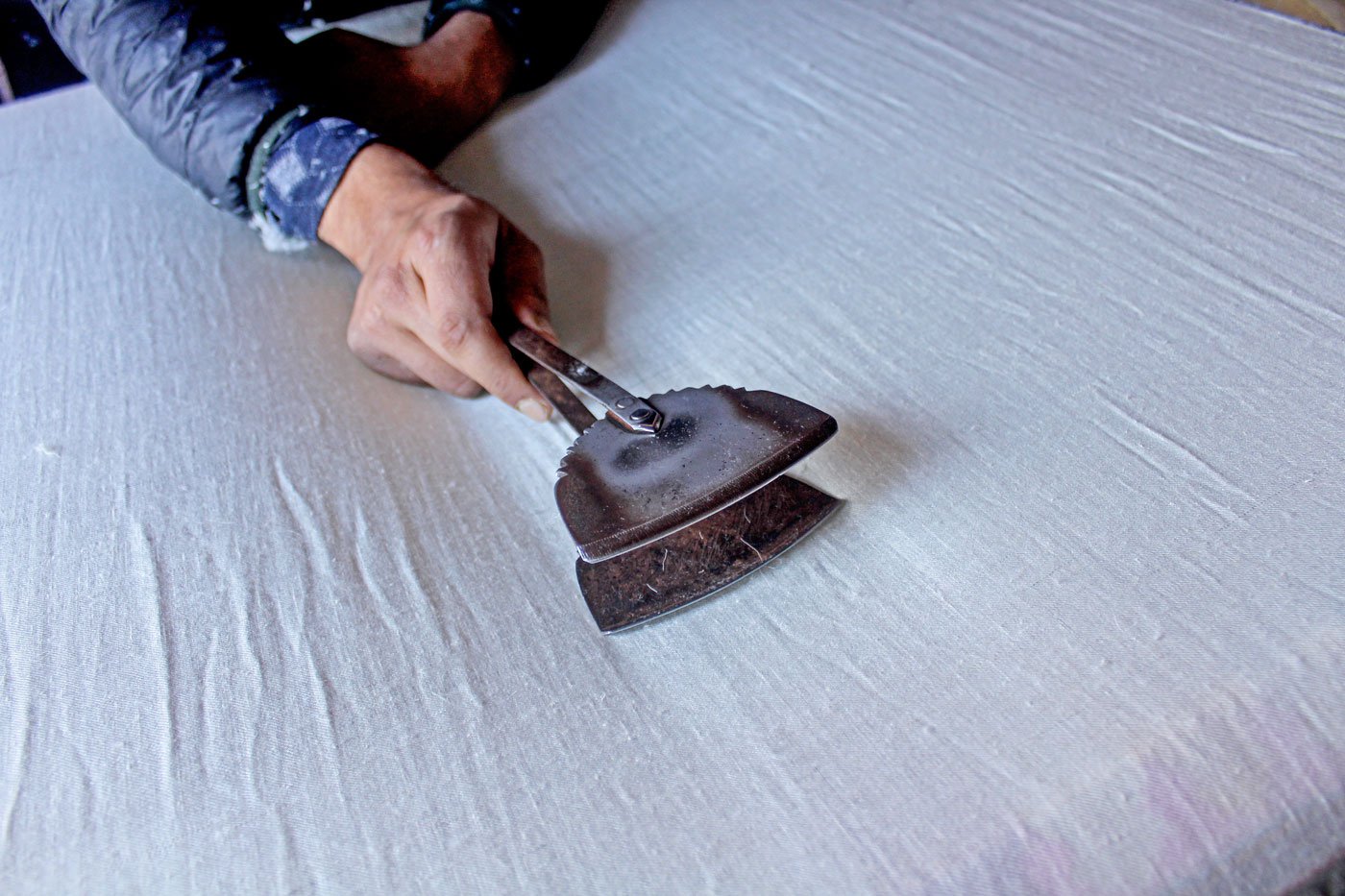
Feroz Ahmad, a purazgar at a workshop in Mirjanpura, works with a wouch which has not been sharpened properly in the previous two years
“In the 40 years I have been working as a purazgar , I have not seen a tougher time for this trade,” says Nazir Ahmad Bhat. “Twenty years ago, I was paid 30 rupees per shawl. Now, I earn 50 rupees for the same work.” Nazir’s craftsmanship earns an increment of just one rupee a year.
The troubles of
purazgars
are reflected in the sharp decline in export figures of Kashmiri shawls in the last decade – from 620 crores in 2012-13 to 165.98 crores in 2021-22, according to a report shared with PARI by officials at the Department of Handicrafts and Handloom, Srinagar
A wouch needs to be sharpened after two months of regular use. In times of such slow business, few blacksmiths are willing to learn this skill.
"Purazgars
themselves don’t really know how to make or sharpen the wouch,” says Nazir, whose family has been practising
purazgari
for three generations now. Some attempt to sharpen wouchs using a file-like tool, with a flat body and sharp edges. The result, Nazir adds, is never satisfactory.
“We have to manage somehow,” he says.
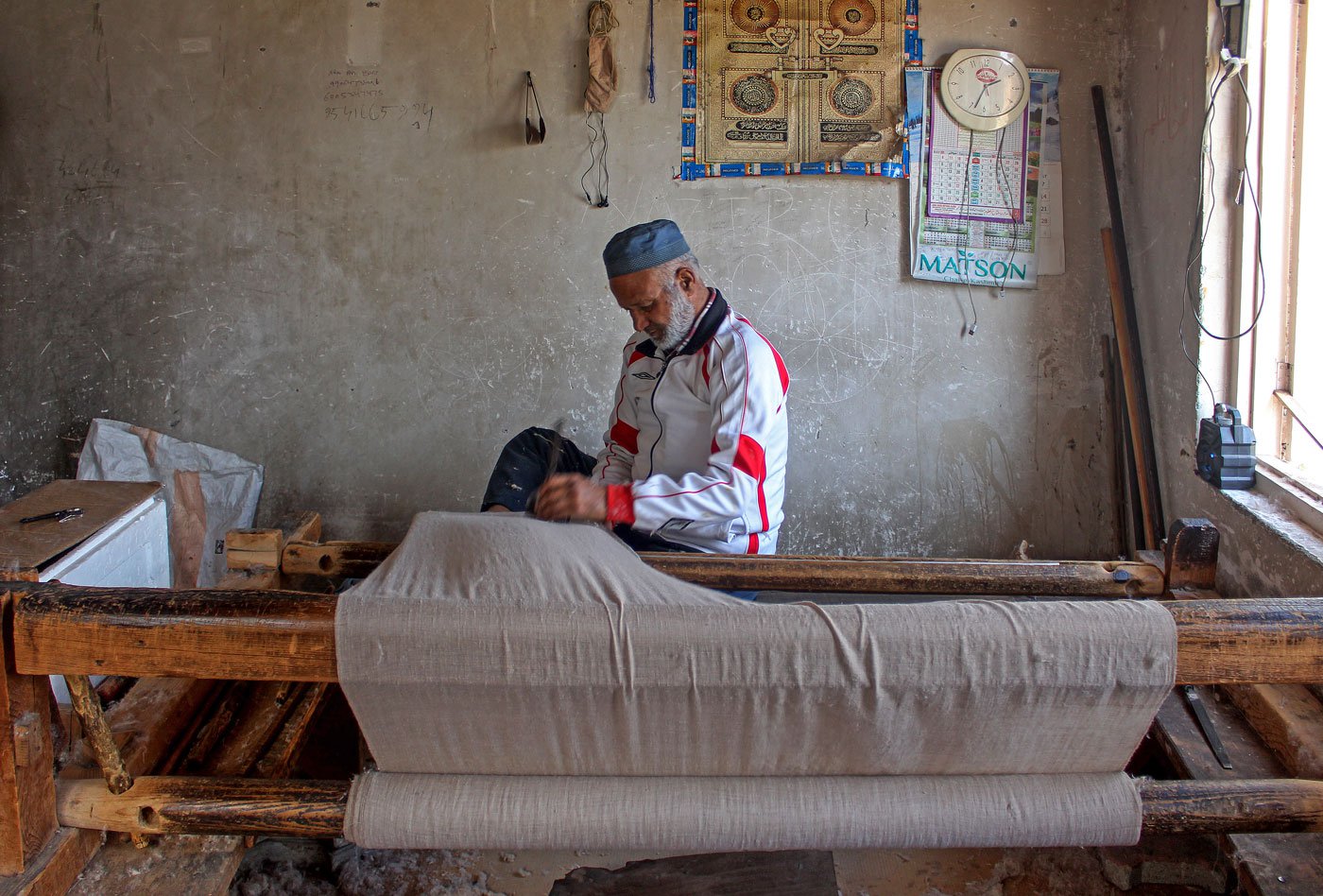
'We have low wages, shortage of tools and get no recognition for our work,' says Nazir Ahmad Bhat as he removes purz – stray threads and lint – from a plain shawl
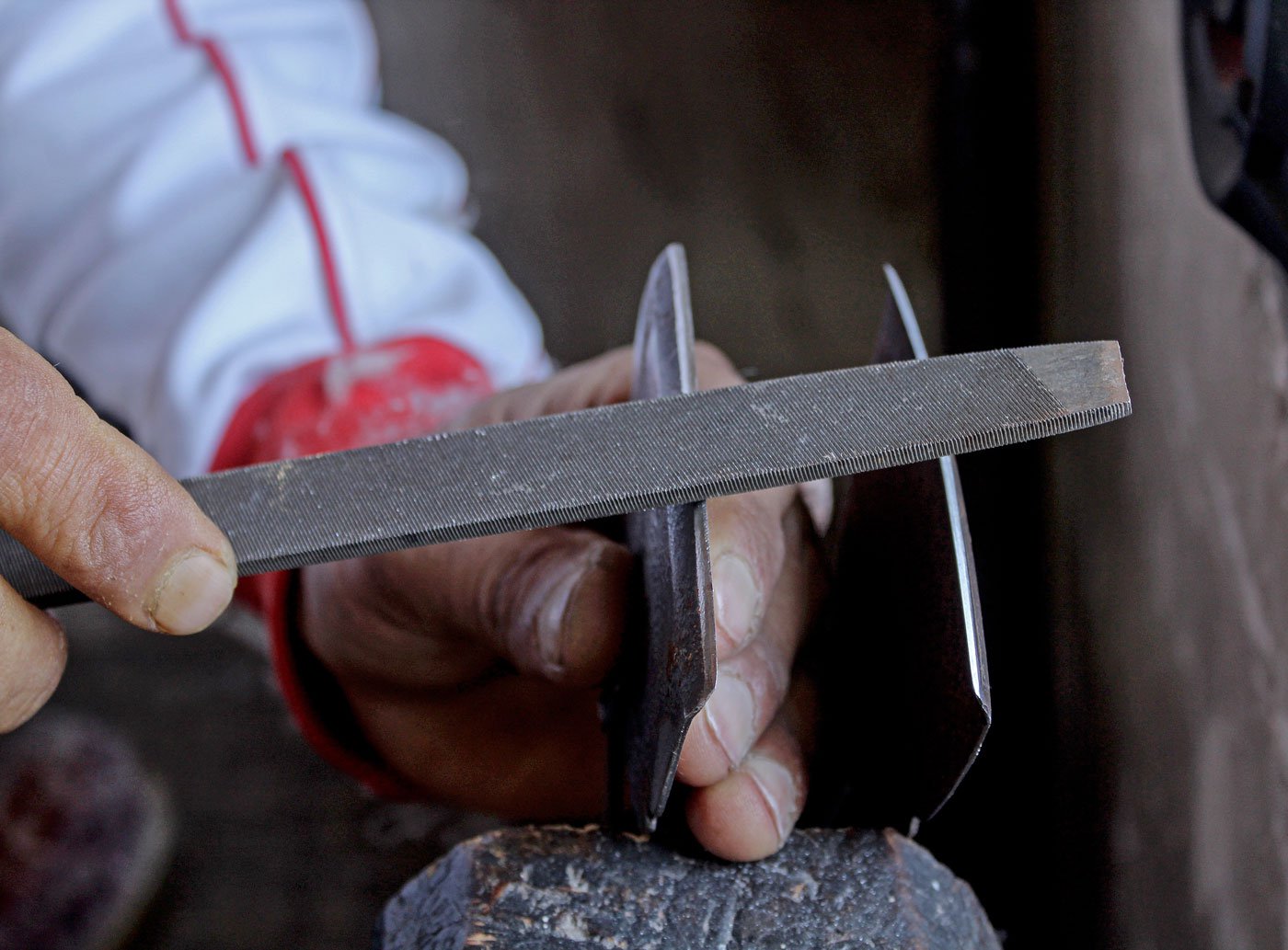
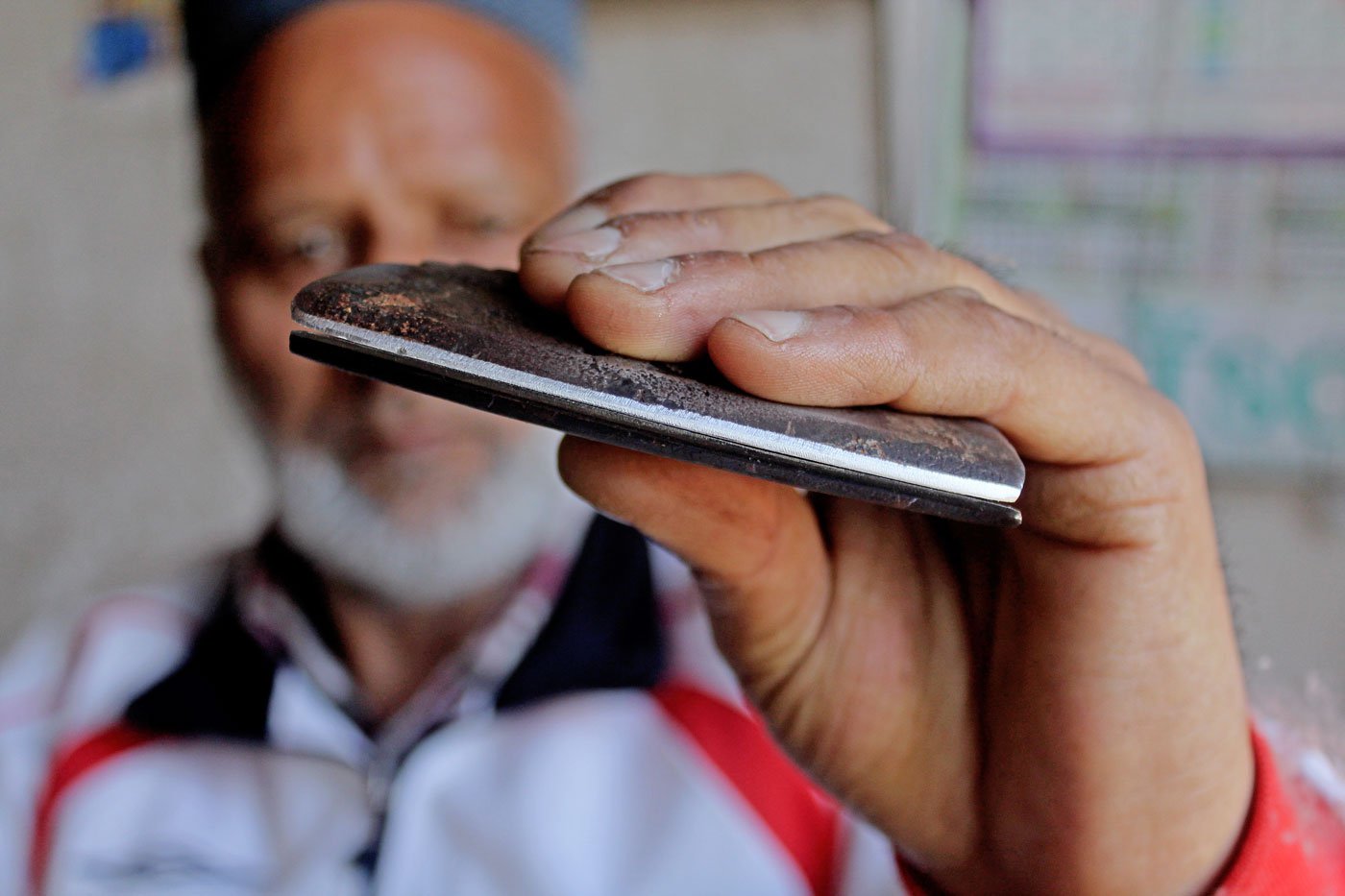
Left: Nazir sharpens his wouch using a file, which does an imperfect job. Right: He checks if the edges of the wouch are now sharp enough to remove flaws from a delicate pashmina shawl
“Look, even this wouch is not sharp,” says Ashiq Ahmad, sitting next to Nazir in the workshop. He points to the teeth of the wouch he is holding: “I can hardly work on 2-3 shawls in a day. The most I can earn is Rs. 200 per day.” Working with blunt wouchs increases the time it takes to clean a shawl. A sharp tool, Ashiq explains, would increase his speed and accuracy, helping him earn more – close to Rs. 500 every day.
For plain pashmina shawls, measuring around 40 x 80 inches,
purazgars
can earn upto Rs. 50 per piece. An embroidered shawl, known locally as ‘kani’, fetches them an income of around Rs. 200.
In an attempt to remedy some of these problems, the state government began an initiative to register
purazgars
under their Department of Handicrafts and Handloom. Slated for March-April this year, “Registration will help
purazgars
seek financial support easily,” says Mahmood Ahmad Shah, director of the department.
While the registration promises better days,
purazgars
presently struggle to carry on.
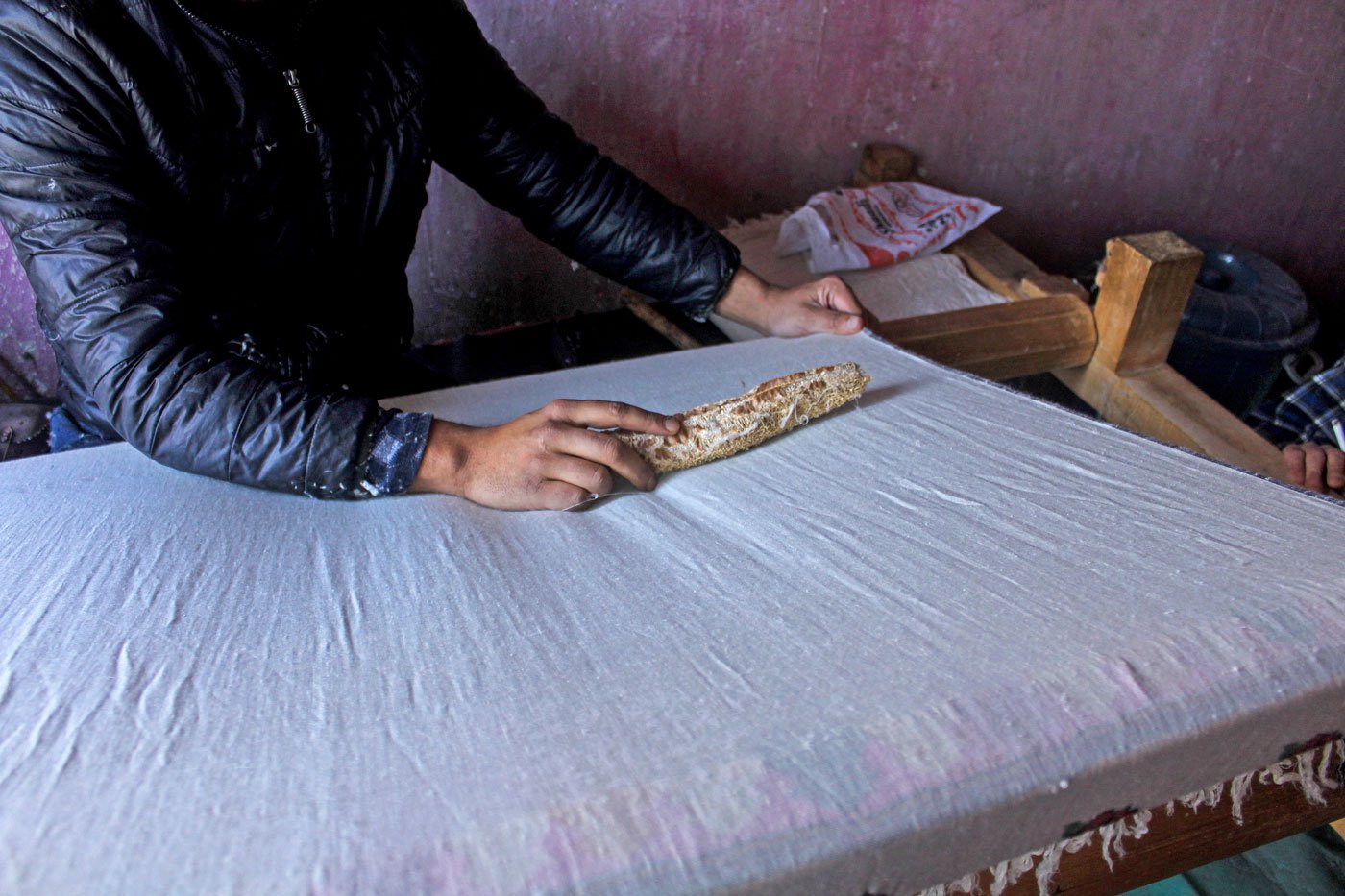
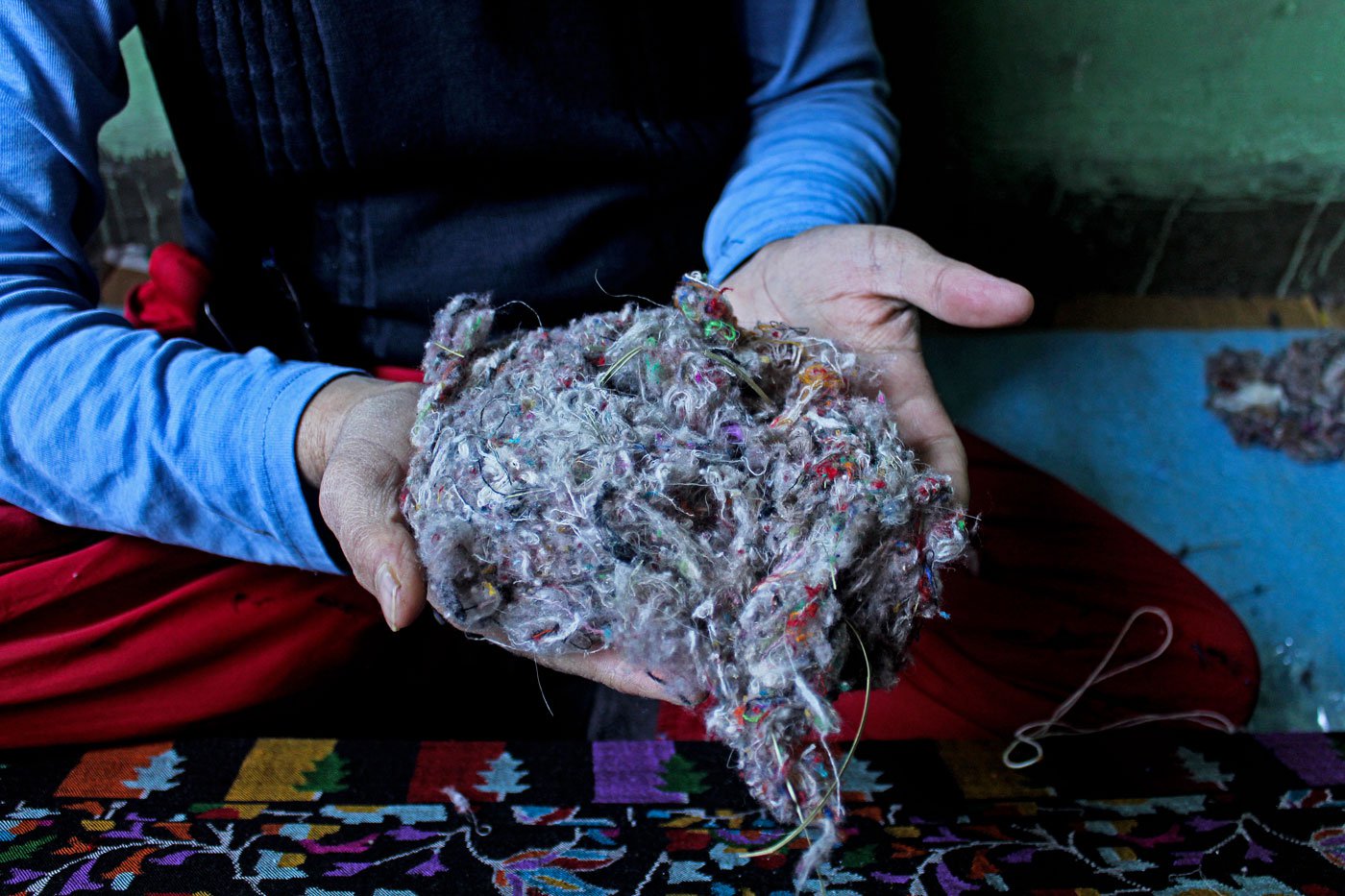
Left: A purazgar brushes over a pashmina shawl with a dried bitter gourd shell to remove purz plucked with a wouch. Right: Ashiq, a purazgar , shows the purz he has removed from working all morning
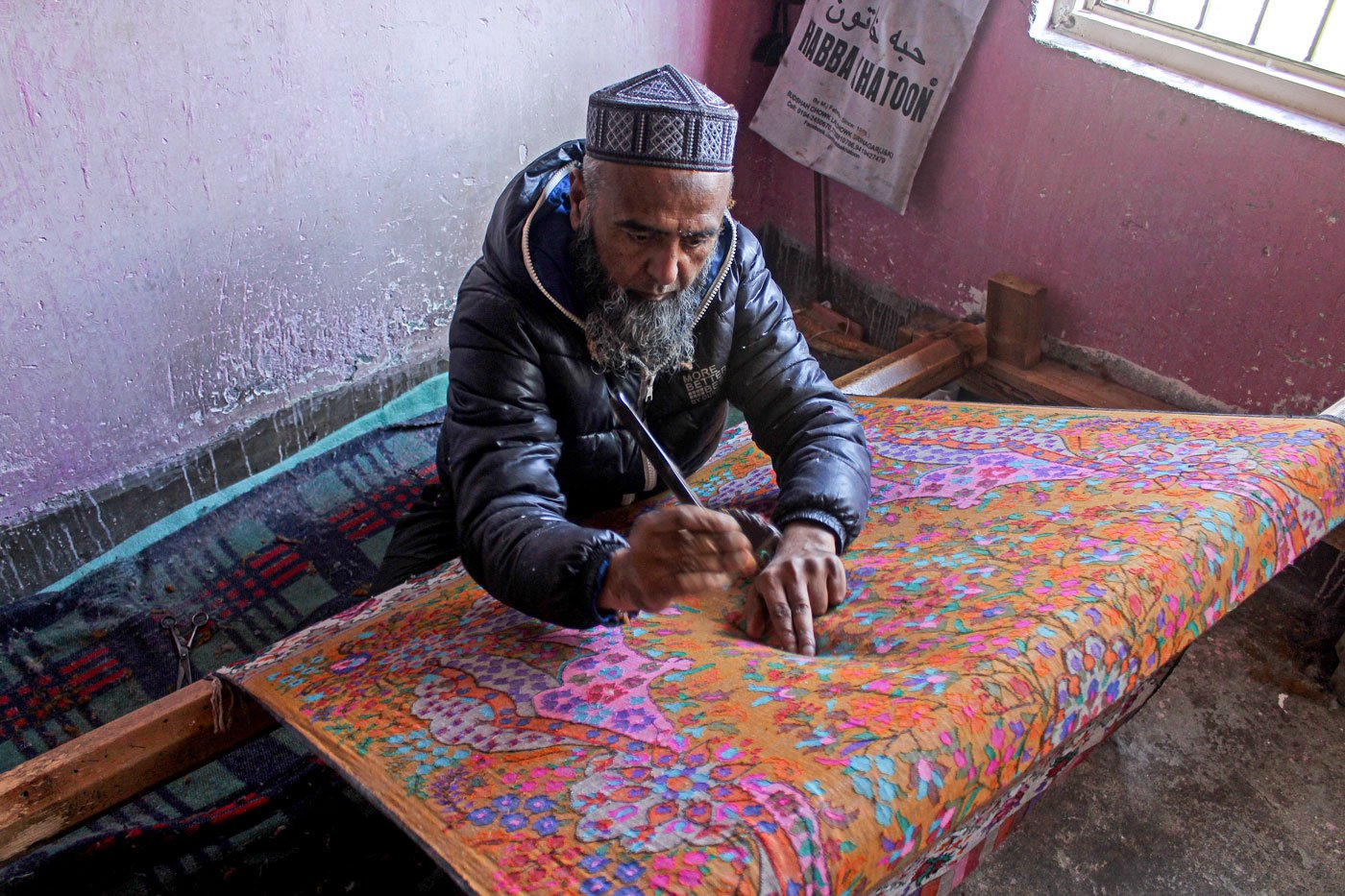
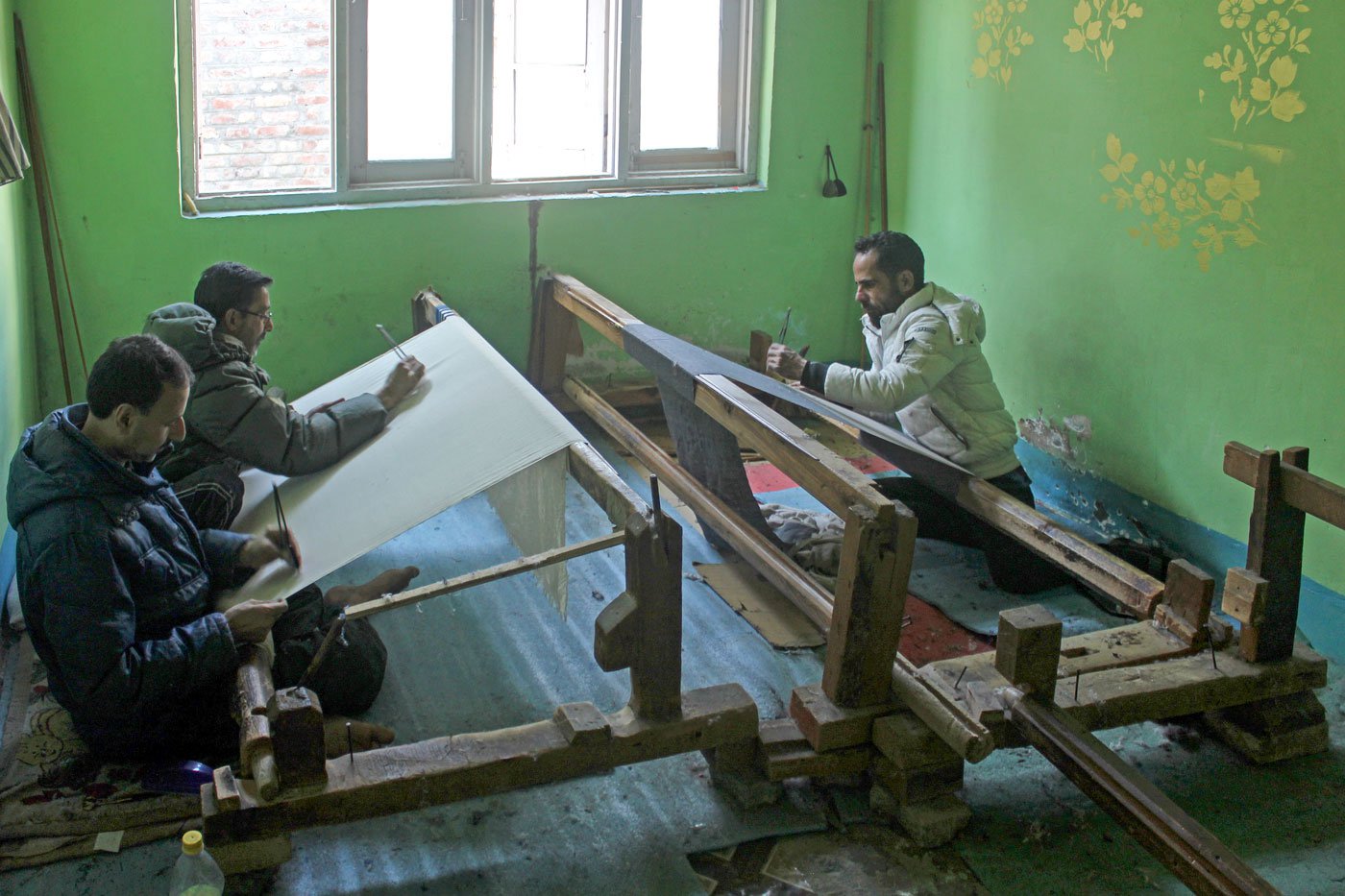
Left: Khursheed Ahmad Bhat works on a kani shawl. Right: If a shawl is bigger than the standard 40 x 80 inches, two purazgars work on it together on a loom
Many young purazgars worry that they will not be able to earn a stable income through their craft. “I will switch to some other trade, if and when opportunities come up,” says Feroz. One of his co-workers adds, “Can you believe I am getting married at the age of 45? No one wants to marry a purazgar who earns so little. Best to switch.”
“It is not that easy,” Fayaz Ahmad Shalla, 62, is quick to chime in. He has been listening intently to the two young
purazgars
. Working since he was 12 years old, Fayaz speaks of
purazgari
with a hint of nostalgia. “I have inherited this skill from my father Habib-ullah Shalla. In fact, most of the
purazgars
in downtown Srinagar have learnt this craft from my father.”
Despite the uncertainties looming ahead, Fayaz is reluctant to leave
purazgari
– “I have little knowledge about other trades,” he says dismissing the idea. With a time-tested move, he plucks lint off the delicate pashmina shawl he is working on and says smiling, “
Purazgari
is really all I know.”
